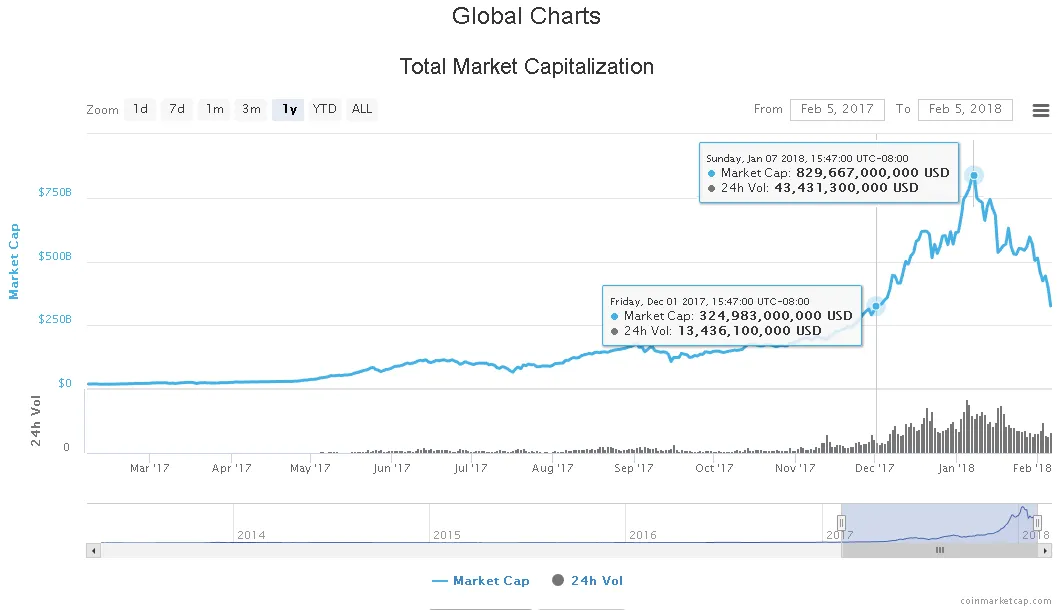Is it possible that an extra driving factor behind this sell-off was right in front of us this entire time?
Maybe even spelled out to us in clear language by the major US banks?
I think many of us may have overlooked the significance of the recent move to ban crypto purchases using credit in the U.S.
We all know the market gained massively between December 1st and January 7th when it reached it's peak.
In a little over a month, the entire market more than doubled (about 2.5x).

We aslo know that nothing ever goes up in a straight line. And over the course of the last year we've had BTC "crashes" every 2 months or so. I'm not going to go in depth talking about the basics of market behavior because it's not what this post is about, and I'm not a qualified expert here to teach you the market.
The fact is: a market crash was to be expected.
Due to the hugely volatile and speculative nature of crypto investements, market action and news (postive or FUD) can often be enough to set off huge swings like this. We're now down to nearly the same total market cap as we were back on December 1st (the removal of South Korean exchanges from Coinmarketcap's pricing data on January 8th makes this look a little worse than it is).
But is there something else contributing this time? Possibly even big money conspiring to push things lower and create a buying opportunity for themselves?
ENTER the big bank's recent decision to ban crypto purchases by credit card.

As of last friday (Feb. 2nd), all of the top 5 US credit issuers have now banned the use of their cards to buy crypto.
OK. But how many people purchase their crypto using credit anyway?
According to recent polling by lendedu.com, it turns out the answer might be quite a few.
When 672 "active Bitcoin investor" respondents were asked: "Which of the following best describes how you funded your account to purchase Bitcoin?"
33.63% answered "I used a debit card to fund and purchase."
18.60% answered "I used the ACH bank transfer process to fund and purchase."
18.15% answered "I used a credit card to fund and purchase."
16.22% answered "Other."
13.39% answered "I used a bank wire transfer to fund and purchase."
The poll suggests that maybe as many as 18% of us are funding our exchange accounts by credit card. It's more than I expected. And maybe it's even enough to turn a routine sell-off into the monster crash we're seeing now. If this translates into 18% less crypto purchases by individual investors (who still make up the majority of the crypto market by the way), it's definitely not going to help the prices in the short term.
So what does it all mean?

It's been rumored and reported on for awhile now that central banks will start buying crypto in 2018. If it's true, what better way to start the year than with a CRASH? If big money is getting in, they want a nice entry point. Sure, there are other possible excuses for banks to make it hard to buy crypto, but if blockchains really are the future (all signs point to yes), the banks will need to jump in eventually. The financial incentive for them to make this crash worse is impossible to ignore.
Is this the bottom?
Nobody knows for sure. But this is already the largest sell-off crypto has seen in over a year--a span of time so long in crypto that it may as well be forever. In my humble opinion the chances of a further crash are low, and I see only positive news in the crypto space. I think South Korea's clarification that they will not be banning crypto trading is the biggest news we've had recently for the overall crypto market, and it's good.
All things considered-- my current working theory is that normal market action, plus the coinmarketcap.com FUD on January 8th, plus the credit ban, have helped bring us to the extreme low we see today. But I see no real reason for the market to go much lower, so I'm about to start buying the dip.